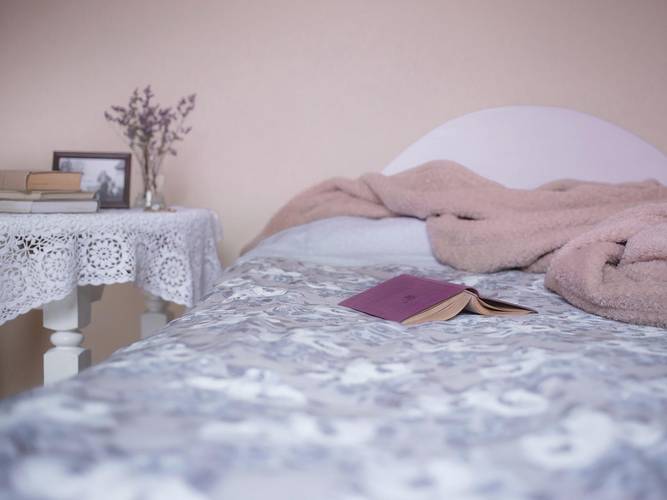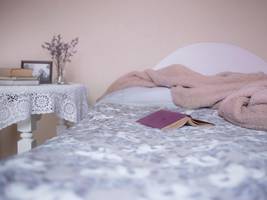The complainant, who lives in a residential unit of the Community for Young People on Gerbičeva street in Ljubljana and rents a bed, was refused an application for a rent subsidy by the social work centre on the grounds that he is not entitled to the subsidy because he does not rent a commercial apartment/residential unit, but only a bed in the residential unit. The rental agreement stated that as a renter of the bed, he shared the common kitchen, dining room, laundry room, and meeting room. The Ombudsman called on the MDDZS (Ministry of Labour, Family, Social Affairs and Equal Opportunities) to give its opinion. The MDDSZ then communicated that the rental of a bed in residential units of the Community for Young People is classified as a rental of a residential unit with shared use of toilets and a kitchen, and that this fulfils the condition according to Article 28 of the Exercise of Rights from Public Funds Act (ZUPJS), and that renters may be entitled to rent subsidy if they also meet other conditions for entitlement to the aforementioned right. The Ombudsman also proposed to the MDDSZ to regulate the position of all beneficiaries of the rent subsidy in residential units of the Community for Young People according to the adopted position.
* * *
The Human Rights Ombudsman of the Republic of Slovenia (the Ombudsman) was contacted by the complainant, who lives in the residential unit of the Community for Young People on Gerbičeva ulica in Ljubljana (Community for Young People)[1] and rents a bed. The complainant's application for a rent subsidy was rejected by the Centre for social work (CSD) on the grounds that he is not entitled to the subsidy because he is not renting a market-based apartment/residential unit, but only a bed in a residential unit. The rental agreement stated that as a renter of the bed, he shared the common kitchen, dining room, laundry room, and meeting room.
The Ombudsman gave an opinion to the Ministry of Labour, Family, Social Affairs and Equal Opportunities (MDDSZ), which was dealing with the complainant's appeal against the decision of the CSD, that renting a bed in a residential unit is also a rental of a residential unit[2] and that the renter of such a bed is also entitled to a rent subsidy, if he also meets other conditions for it, which are stipulated in Article 28 of the Act on the Exercise of Rights from Public Funds Act (ZUPJS). MDDSZ did not agree with the Ombudsman's opinion.
The Housing Fund of the Republic of Slovenia (Fund), with which the Ombudsman made an inquiry, confirmed that it is aware of the issues of bed renters in exercising the right to rent subsidy due to the fact that the subject of the rental agreement is only a bed in a residential unit and not a residential unit. The Fund was also of the opinion that the current legislation also allows subsidised residence in residential units for persons involved in the subject pilot project. The Fund informed the Ombudsman about its activities up to that point to resolve the issue raised and about the opinion that the Ministry of Natural Resources and Spatial Planning (MOP) had in the meantime forwarded to the MDDSZ, which was consistent with the Ombudsman's opinion.
The Ombudsman suggested that the MDDSZ examine the issue once more and if it insists on its position, it should explain whether, given the purpose and goal of the pilot project, who are the beneficiaries of renting a bed in the residential unit, and for what the rent subsidy is intended for, and if these renters should also be entitled to a rent subsidy. If the MDDSZ believed that they should have been entitled to it, the Ombudsman would be interested in the activities of the MDDSZ to change the applicable legislation in this direction.
The MDDSZ replied that it had changed its original position, i.e. adopted the position that renting a bed in residential units of the Community for Young people is classified as renting a housing unit with shared use of toilets and the kitchen, and that this fulfils the condition of Article 28 of the ZUPJS and renters may be entitled to rent subsidy, if they also meet the other requirements for entitlement to the aforementioned right. It also communicated, according to the stated position, that it is already making decisions in appeal procedures, and in this regard it also prepared instructions for social work centres.
The Ombudsman then suggested that the MDDSZ regulate the position of all persons entitled to the rent subsidy in residential units of the Community for Young People according to the adopted position, including those whose appeals had already been decided and those whose appeals were unsuccessful since the position of the MDDSZ was different at the time of the decision on their appeal. The MDDSZ checked the decisions in completed appeal procedures and found that there were no such cases or that only one appeal was rejected, against which a social dispute was initiated. 9.5-8/2022
[1] The residential community for young people at Gerbičeva Street in Ljubljana is a pilot project that was created on the basis of the Resolution on the National Housing Programme 2015–2025 (ReNSP15-25) with the idea and goal of increasing the independence of young people between the ages of 18 and 29. The residential community is located in the building of the Housing Fund of the Republic of Slovenia. It has 109 residential units with 171 beds. The residential units have single, double or triple beds, and the Fund rents out the beds in the residential unit. Adolescents and young adults of both sexes who are citizens of the Republic of Slovenia or citizens of European Union member states with a permanent residence permit in the Republic of Slovenia, between the ages of 18 and 29 inclusive, and are fully operationally capable natural persons (obtained at: www.skupnost-za-mlade-gerbiceva.ssrs.si/).
[2] Residential units in all types of residential buildings for special purposes are residential units, which, depending on the purpose and method of use, are classified into residential units with shared sanitary facilities and kitchens, residential units with sanitary facilities or bathrooms and shared kitchen and residential units with a bathroom and a kitchenette (Paragraph 2 of Article 6 of the Housing Act (SZ-1)).

